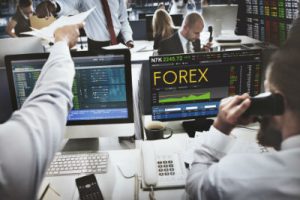
The Forex market is a unique and an amazing one. With over $6 trillion global daily trading volume, it’s considered as the largest and most liquid financial market in the world. But with such enormous size, it can be a difficult task to really watch over it. Over the years, Forex regulators from different countries have tightened measures to protect consumers. However, many still commit Forex-related scams and get away with it.
The Role of Forex Regulators
Trading Forex before was largely done via trading floors and big banks, but the emergence of the internet has opened the door for retail and small time traders to participate in the FX market. Because it’s become much easier to have access to the Forex market, the global trading volume being conducted on a daily basis has substantially ballooned in recent years. This growth is a good thing, but it’s become equally tough to monitor the entire market.
The Forex market is a decentralized market, where buyers and sellers interact directly. Because it’s done over the counter, specific financial agencies have to step up to ensure the integrity of the entire industry. These agencies are assigned to act as watchdogs that provide licenses to financial firms including Forex brokers. Also, part of their job is to implement necessary measures and rules, as well as penalize those Forex companies that violate such measures.
Dealing with Forex Regulation
So how do Top Online Forex brokers deal with regulation? Over the years, we’ve seen many Forex brokers that failed miserably in really making it big in the Forex business. The main reason behind this is because of their inability to acquire licenses from FX watchdogs. Thankfully, traders nowadays seem to be wiser, trading only with Forex companies licensed by established and reputable regulators. With this said, unregulated brokers tend to stay in the business for only a short time due to shortage of clients.
For brokers regulated by reputable agencies like the Financial Conduct Authority and the Australian Securities Commission, they deal with regulation by following the ethical rules and practices by their respective regulators. Here are some practices that they follow:
-
Segregation of Client Funds
Most reliable Forex brokers offer segregated accounts. This means the funds of their clients are separated from the brokers’ funds. Client funds are maintained at reputable big banks to make sure they’re not used for the operational expenses of brokers.
-
Reporting to Clients and Regulators
Forex brokers send out monthly account statements and position records to their clients for transparency. Also, they are required to submit to regulators their annual or quarter financial statements to ensure that they have adequate capital to continue with their operations.
-
Refrain from Making Unrealistic Promises
Regulators like the FCA strictly prohibit brokers under their regulation to make unrealistic promises to their clients. Manipulative practices are strictly not allowed. Brokers cannot advise their clients to make certain trading decisions. If brokers are found to be doing such practices, they would be severely fined.
-
Limit on Leverage
Leverage boosts the trading capacity of traders. This is why a lot of brokers provide leverage as high as 1:1000 to entice clients into trading with them. However, regulators such as the FCA prohibits too high leverage as they put traders at higher risk. As you know by now, leverage is a double-edged sword. Yes, it powers up your trading capital, enabling you trade higher volumes, but you may also incur equally higher losses.
Final Thoughts
Forex trading itself is a risky venture. But it has become riskier because of many Forex companies and even individuals trying to manipulate vulnerable traders and investors for profits. These have given Forex trading a bad name. Now with this said, it’s only common sense to only transact with highly-regulated Forex brokers. Luckily, we have financial agencies like the FCA and ASIC which continue to step up to protect the general public.
Now if you’re a budding Forex trader, the last thing you would want to happen is to get scammed. Do your part. Before engaging in any broker, and putting in your money, make sure that you’ve done thorough research. You can start by checking their license numbers on their respective regulators.










